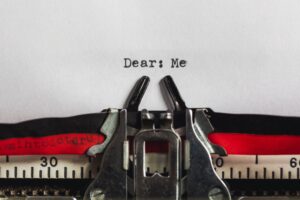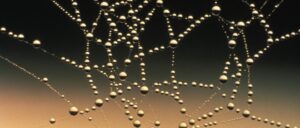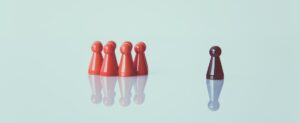Understanding ill-health
Three years ago I was in a ‘good’ job: high paying with a senior designation. Plus, it was in the social sector, and we were implementing a large program for pregnant woman. That’s all I could have ever asked for in a job – it checked all my boxes. I had also recently moved into my newly renovated flat which I had done up just the way I wanted, so no complaints there.
Yet, I had a strange feeling I was heading down some dark alley of no return. Signs of mental illness, you may think. I wouldn’t disagree, except that I had been to at least two different therapists by then, and no one gave me a diagnosis. Though honestly, one does not need a diagnosis to tell us when something is wrong; we feel it in our gut. I found myself constantly angry, restless, and unable to enjoy my newly renovated home.
Physically, I weighed 10 kg more than today and people often remarked that I must be in my 50s. I was 41 then.
lass=”yoast-text-mark” />>Once I realised that help was not coming from outside, I started by accepting – and I mean fully accepting – that life didn’t feel good, that something was not right. That made me stop running away from my feelings of anger and restlessness. Second, I started seeing my life for what it was, without judgement and filters, and realised that there was one word that came up constantly for me: disconnection. I felt disconnected from myself and my immediate environment.
It was during that time that I came across an audio book titled, Lost Connections by Johann Hari. Hari, a journalist and writer, talks about disconnection being the real cause of depression. It resonated so much with what I too was discovering, though I wouldn’t say I was depressed. I have since realised it is not just depression but everything we term ill-health that has its roots in disconnection.
Understanding disconnection
As I started unpacking the word disconnection, I felt it most starkly in 4 aspects: with self, with immediate environment, with nature and with people.

1. Disconnection with self
Three years ago my physical body was overweight, anaemic, plagued with indigestion and aches and pains. My mind felt anxious and restless, sometimes churning the same thoughts again and again till they drained me into a deep slumber. I felt powerless and at the mercy of my diseased mind and body, having no intelligence to befriend them. I have never been lazy, so inspite of the discomforts, I was swimming and cycling constantly. These sadly were not making things better.
I slowly started listening to my body, which talks through sensations and feelings. By listening to my aches, pains, acidity, and watching them carefully, I noticed what makes them better or worse. I did the same with my thoughts: observing them, writing a journal, and even did a course on reflective thinking. Just like you don’t have to like every trait of a good friend, I have learnt to own the thoughts that I don’t like, knowing that they too are a part of me and in some way are teaching me something about myself that no one else can. I have become more comfortable with my physicality and mental processes.
2. Isolation and Disconnection with Immediate Environment
Loneliness has been my constant companion for 43 years. From growing up in large empty houses, to living alone for the last 20 years, it is my most lived experience. While I know what it means to feel lonely, it is only now that I unpacked the word and found that it often comes from disconnection with one’s immediate environment.
Immediate environment can be loosely defined as the spaces where we spend most of our 24 hours: the workplace, home, people and neighbourhood.
Deriving a sense of connection from home was difficult for me and perhaps is for anyone who has moved around a lot and lived alone. Urban living, where one lives in high rise flats within gated societies, breed their own kind of isolation. Nuclear families, double income homes means that neighbours are caught up with their own lives and hardly ever visit or encourage you to visit. Feeling rooted in my home came very gradually to me, also after having decided not to do out-station jobs. Home now is not just a place that looks just pretty, but rather a safe space where I manifest my true self.
An erstwhile travelling life has meant that I never experienced a sense of belonging to a tribe or community, something that I have learnt the hard way, also bred disconnection. The virtual world fools us by making us imagine that community can be found there, but a real sense of belonging can only come in physical space and physical presence.
I have learnt to engage myself with my neighbourhood, spend more time in community activities, like playing a game of badminton. Reduced online time. Became a more active citizen associating with RWAs and a member of a citizen group at the district level.
3. Disconnection with People
If we are human, people and relationships are important. Having meaningful relationships is the gold standard that not many of us achieve. But having some relationships where we can be ourselves, feel seen, go a long way in making us feel connected.
One has to get very real here and not delude oneself merely with numbers and groups and gatherings. Neither will a real sense of connection coming from numbing or escape.

4. Disconnection with nature
It wasn’t until I started healing my body through naturopathy that the word nature even became important to me. Till then, nature only came up when it was unpleasant: too hot, too cold, too much rain. Now I realise that my most serious disconnection was with nature. Having succumbed to modern living I had stopped noticing the sun, wind, sky or season changes and weather outside. I was mostly holed up indoors under artificial air conditioning, too numb to sense my natural surroundings and natural instincts.
Mud on my feet was dirt, rains were to be avoided, and the sun was an irritant. The disconnection was complete. Nature is also where my most significant turn-around has been. Once I learned to walk barefoot on mud & home, take sun baths and watch the sky, I also learned to reconnect with my own body.
Of all the three types of disconnection I have mentioned, connecting with nature is also one that is most in our control. Nature offers itself in abundance, irrespective of where or who we are.





1 thought on “Disconnection: the source of all ill-health”
This is so well written Rupi. The honesty is deeply moving and the ‘reconnection’ so heartwarming!